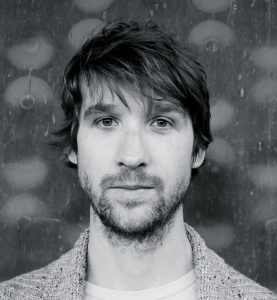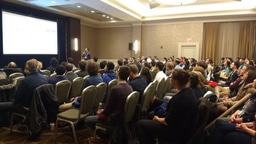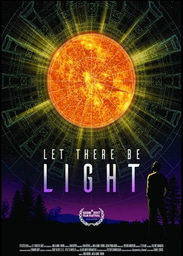Interactions: Michael Baker
Published in Physics
What did you train in? What are you working on now?
 My training was in physics: a physics undergraduate followed by a PhD in magnetism. Today I’d describe my work as physical chemistry and bioinorganic chemistry with magnetism as a professional hobby. One of the freedoms I have now as an independent researcher is that I can interchange topics depending on the sorts of interesting problems that come about. I really enjoy using X-ray and neutron spectroscopies to solve problems that are hard to tackle by more routine methods. So whether it is a active site in an enzyme or an unusual quantum tunneling effect in condensed matter, it doesn’t matter to me how a subject should be categorized.
My training was in physics: a physics undergraduate followed by a PhD in magnetism. Today I’d describe my work as physical chemistry and bioinorganic chemistry with magnetism as a professional hobby. One of the freedoms I have now as an independent researcher is that I can interchange topics depending on the sorts of interesting problems that come about. I really enjoy using X-ray and neutron spectroscopies to solve problems that are hard to tackle by more routine methods. So whether it is a active site in an enzyme or an unusual quantum tunneling effect in condensed matter, it doesn’t matter to me how a subject should be categorized.
Do you think of yourself as a physicist or as a biochemist?
Neither! However I like to think I can speak to both about their science. I think of myself as being somewhere between physics and chemistry I suppose.
What motivated you to move to this field of research?
My transition from magnetism to bioinorganic chemistry was driven by a desire to be involved in doing something of general interest to people but also fundamental. An example is oxyhemoglobin, with its iron sites that bind and release oxygen for transport. It is high-school biology, everyone appreciates its importance. Yet the electronic structure of that iron oxygen bond has been a very elusive problem and a contentious matter. So it is problems like this that made me realise just how many important problems there are to work on in this area. However, above all it was the Human Frontier Science Program that made my move realistic. Their cross-disciplinary fellowship offers three years of funding for computer scientists, mathematicians and physicists to switch to working in the biological sciences.
What did you find more difficult when you started working in an area out of your comfort zone?
When you don’t know a field or the people working in it the literature can be overwhelming. I spent months reading papers, following citations and reading more papers.
And what did you find most helpful to familiarize yourself with new concepts and jargon?
Just getting on with it. Asking all the stupid questions as early as possible.
Tell us about your experience the first time you went to a conference outside the field you trained in.
This is where not knowing the field makes things difficult. In molecular magnetism I knew many people and their work. Bioinorganic conference sessions were like a first day at a new school.
What are the main challenges and the main advantages of working in an interdisciplinary team?
You are adaptable and able to move into new areas quickly. When people are given the opportunity to be the group expert on a particular topic, they expand into the role and become proud of it and generally excel. People can be proud of not knowing about some topics too, which makes a great incubator for knowledge exchange and collaboration.
What would be your advice to a PI leading an interdisciplinary group?
Well this is too early on for me to have much insight. I am just getting started on that front.
Do you find it particularly difficult to obtain funding? Or to get your research published?
I think being interdisciplinary is a great advantage when applying for funding. Knowing about how people from different fields speak and write really helps to put yourself in the shoes of the reader or audience. A greater sense of adaptability opens up more funding options too, although writing proposals on completely different topics in different fields is very time consuming. In my case there was certainly an impact on my publication output when switching research fields. This can be stressful, but I think I am getting there now.


Please sign in or register for FREE
If you are a registered user on Research Communities by Springer Nature, please sign in